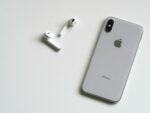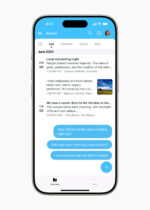A few taps on his iPhone may well have been the difference between life and death for Dan Woolley, an American aid worker in Haiti, when the 7.0-magnitude earthquake struck the island nation on Jan. 12. Woolley found himself trapped in the ruins of the Hotel Montana in Port-au-Prince, armed with nothing but his iPhone and a “Pocket First Aid & CPR” application to keep him alive for the next 65 hours.
Thousands of miles away in San Francisco, the application’s developers had no idea their work was saving someone’s life.
Doug Kent and Ogden Kent, programmers who are not related, created the application after a hike Ogden took in Yosemite National Park in August 2008. During that trip, a friend of Ogden suggested creating a first-aid application that would work outside of cell phone range.
After Ogden’s return, he and Doug, who was an EMT in college, gathered books, organized content and reviewed material with doctor friends. The application was developed in six weeks and released to Apple, where it was featured on the AppStore three weeks later.
Doug and Ogden, who had founded Jive Media by then, wanted to reach out to large health organizations to expand the project. “We wanted to see what we could build and were thinking about the long term,” Doug Kent said.
They found a willing partner in the American Heart Association, which was also looking for opportunities in the mobile device market. “We were in search of a mobile application to get our information out there,” said Kevin Turner of the AHA’s International Group for Emergency Cardiovascular Care. “Their platform was perfect, and we had the content to make it better.”
Written in Apple’s Xcode development environment, the Jive Media application draws from the AHA’s content on the subject, which includes four books and three DVDs. The programmers then organized the text, images and video for the application, Doug Kent said.
So, under the rubble of a collapsed hotel in Haiti, Woolley was able to easily navigate the app’s non-linear layout while he found out how to treat his injuries. Looking up “excessive bleeding” and “compound fractures,” he learned how to bandage his leg with his shirt and belt, and he pressed a sock to his bleeding head, according to a report of his rescue on CNN.
Fearing shock, Woolley also asked the app what to do. When he was warned not to sleep, he set his phone alarm to go off every 20 minutes. Turner said of Woolley’s ordeal: “We are always honored because that is the purpose in what we do; it’s the outcome we look for.”
Since Woolley’s story aired on CNN, Doug Kent said there have been significantly more downloads of the US$3.99 app, which is now 45th out of the top 50 paid applications. They also place 15th on the list of top-grossing applications in the health and fitness category.
Despite the amount of fame Jive Media has gotten, the story is about Dan Woolley, Doug Kent said. But, he added, it’s certainly “rewarding.”





